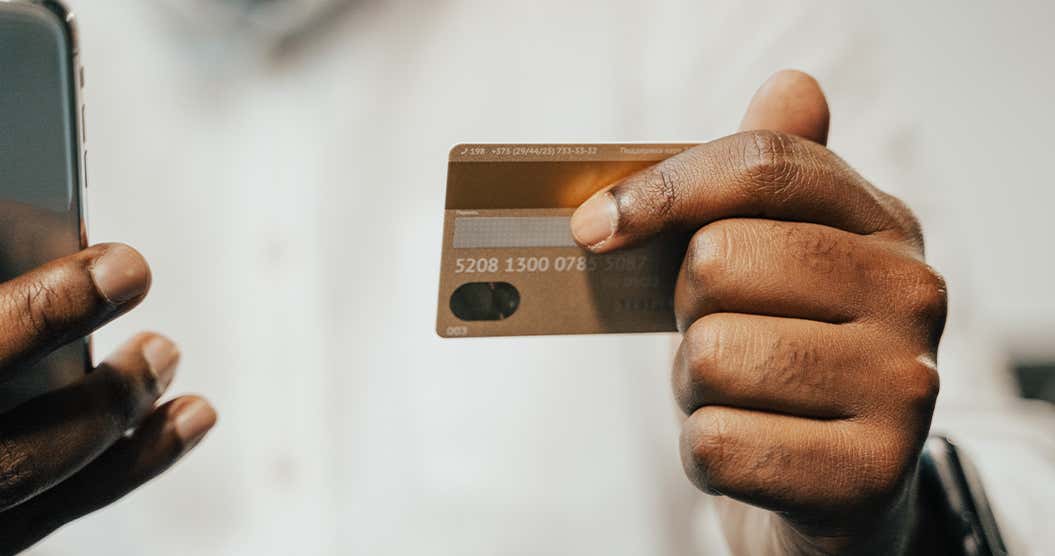Do you have an older credit card that you rarely or never use? You’re not alone. All in, Americans carry 365 million credit cards in their wallets, yet 25% of those accounts are dormant, according to the American Bankers Association’s latest report.
These stats often prompt questions: Should I cancel my oldest credit card or keep it open? And how will it impact my credit score? The answers involve some important pros and cons. To decide the best option for you, here’s what you need to know before closing your oldest credit card.
Is it better to cancel unused credit cards or keep them?
Everyone’s financial needs change over time, so your credit card priorities may change, too. The card you opened 10 years ago, for instance, may no longer fit your spending habits nor match the valuable perks many card issuers offer today. But because the age of your credit history is a factor in your credit score, it might make sense to keep a credit card account open. Here are some of the key advantages and disadvantages of closing your oldest credit card.
Pros of closing a credit card
- Getting rid of an annual fee. If an old credit card that you’re not using charges a high annual fee, that’s real money you could be saving or applying to other needs.
- Having one less card to worry about. Reducing the number of accounts you have to keep track of and manage can be meaningful if you’re looking to simplify your finances. Plus, credit card companies may eventually seek to shut a dormant account if there’s no activity associated with it for a very long time.
- Removing the temptation to overspend. Even if you lock away an old credit card, it’s still there — along with its available credit line. Some people may prefer to avoid such temptation by closing an account permanently.
Cons of closing a credit card
- Shortening your credit history. Credit scoring considers the average age of your credit accounts — and the age of your oldest one. The length of your credit history, in fact, makes up 15% of a FICO Score. So, by closing your oldest credit card, your credit history gets shorter — and that could affect your credit score.
- Increasing credit utilization ratio. The amount of credit you use compared with the amount you have available is known as your credit utilization ratio. This influential measure can account for 30% of a FICO Score. If you’re working hard to build your credit history or improve your credit score, unused cards can lower your credit utilization. Here’s an example:
- Say you have a total available credit limit of $10,000 split evenly between two credit cards. One card has a $2,500 balance and the other has a zero balance. Your credit utilization ratio is 25%. If you were to close that zero-balance card, however, your ratio would climb to 50%, which could impact your credit score. This increase of 25% in utilization rate could drop your credit score anywhere from 15 to 40 points.
- Eliminating a source of available credit. On the flip side, closing an established credit card account takes away a source of credit that you could tap if an emergency expense occurs. While you don’t want to make a habit of charging large purchases you can’t afford, having available credit may help meet an important, short-term need.
- Forfeiting cardholder perks or low rates. If you have a low interest rate and attractive perks on the card you're considering closing, you’ll lose those terms and rewards once you close your account. In particular, the low interest rate might be unavailable if you apply for the same card in the future.
Does closing an old credit card always hurt your credit score?
When figuring out if canceling an old credit card makes sense, there are other strategies you can weigh as well. One alternative to think about that can keep your credit experience intact is to ask the card issuer for a “product change.”
This option lets you exchange your current card for another one offered by the same credit card company. You might be able to get a more favorable card that way, maybe with better rewards or no annual fee. Plus, your new card will preserve your credit history and credit limit, and the swap won’t affect your credit score.
How long does a closed account stay on your credit report?
Another detail to know is that closing your oldest credit card may not remove it from your credit report immediately. Closed accounts that were in good standing — for example, with a history of on-time payments — may stay on your credit report for up to 10 years. In comparison, accounts with negative information — such as a record of collections activity — may stay on your credit report for up to seven years before they disappear for good and are no longer a ranking factor in your credit score.
How do I close an old credit card?
If you’ve made a decision to close an old credit card account, here are eight steps to follow.
1. Pay off any remaining balance to bring the account to zero before you cancel. Just be aware that if you were previously carrying a balance, you need to watch for any accrued interest charges that will be billed in the last month’s statement. It’s common for some to miss these charges by not realizing there was a small balance due and end up with a past due account on their credit report.
2. Redeem any unclaimed rewards you’ve earned prior to closing an account.
3. Call your credit card issuer’s customer service number or go to its website to get instructions for closing an existing account. Some issuers may let you send a cancellation request through their secure messaging portal.
4. Be sure to tell the customer representative to note that the account is being “closed at your request.”
5. Ask for written confirmation of your account cancellation.
6. As extra proof of your request, follow up by mailing a certified cancellation letter including the date, name, conversation details, and any reference number you were given.
7. Check your credit report to ensure that the credit bureaus accurately list the account as closed and that it was done at your request.
8. Destroy your old card.
The Bottom Line
Closing an old credit card could be a wise financial move, depending on your personal circumstances. But doing so could also have some credit-score consequences that you’ll want to evaluate with care.
By keeping a credit card account open, you may benefit from having a longer credit history and avoid a temporary ding to your credit score. Closing a credit card might be the right decision for you if the account is relatively new, you’re able to maximize card terms and perks elsewhere, or if you want to simplify your personal finances. By comparing all the pros and cons of closing a credit card, you’ll be able to judge what’s best for you.






